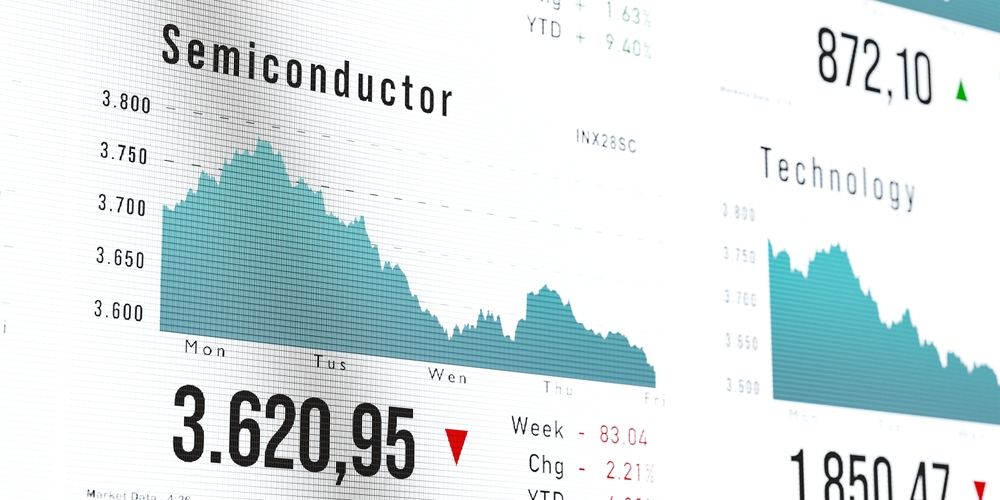
President Trump’s trade war was billed as a pathway to wealth through tariff revenue and a revival of U.S. manufacturing, particularly in advanced industries.
However, the latest job data suggests the opposite, with employment in one of the trade war’s most critical sectors (semiconductors) is plunging.
“The number of people employed in the semiconductor manufacturing industry is plunging,” wrote Kevin Gordon, senior investment strategist at Charles Schwab, citing nonfarm payroll data that show payrolls in the sector have fallen to about 369,000 workers.
The number of people employed in the semiconductor manufacturing industry is plunging pic.twitter.com/P3aWb8WLP2
undefined Kevin Gordon (@KevRGordon) September 5, 2025
Semiconductor employment never fully recovered from the Global Financial Crisis, but it rebounded sharply after Covid, climbing to its highest level since 2009.
The surge was fueled by pandemic-era shortages that exposed America’s reliance on overseas producers, prompting U.S. firms to expand domestic capacity.
The 2022 CHIPS Act added further momentum, with subsidies and tax credits spurring new fabs and reshoring efforts, while booming demand for AI chips supported hiring.
However, by 2023 and 2024, the tide turned. Companies had overbuilt and oversupplied, inventories swelled, and payrolls began shrinking as production slowed.
The downturn has been compounded by tariffs, export controls, and restrictions on advanced chip sales to China — the world’s largest semiconductor consumer — which have curbed demand for U.S.-made chips and weighed on employment.
While Nvidia (NVDA) — now worth more than the entire German stock market — dominates investor attention, the broader U.S. semiconductor sector is grappling with uncertainty and strategic headwinds.
A sector unwinding
Concerns about the U.S. semiconductor industry deepened last month when, in a surprising move, the Trump administration secured a 10% equity stake in Intel (INTC), a struggling chipmaker that has cut about 15,000 jobs since early 2024 as part of sweeping cost reductions.
Some analysts warned the intervention set a troubling precedent, pushing the U.S. closer to a model of “state capitalism.”
The trade war targeting semiconductors — and retaliatory measures from global players — threaten to drive up production costs and slow the buildout of new U.S. fabs.
Beyond Intel, Nvidia, AMD, and Dutch equipment supplier ASML have all cautioned about negative fallout tied to the escalating dispute.
Against this backdrop, Evercore ISI analyst Mark Lipacis recently cut his sales and earnings forecasts for semiconductor companies, particularly those focused on analog chips, which process real-world signals like sound, power, and temperature, and microcontrollers.
His downgrade hit firms including Texas Instruments (TXN), Microchip Technology (MCHP), NXP Semiconductors (NXPI), and Analog Devices (ADI).
Your email address will not be published. Required fields are markedmarked